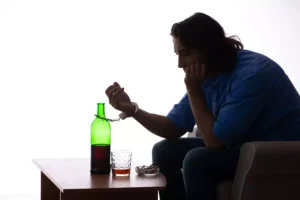
Regardless, The initial detoxification process may take several days. Talk to a medical professional if you have any concerns about tapering off alcohol. They can provide recommendations to help you avoid harmful side effects.

How Common Is Binge Drinking?
Our admissions navigators can help you locate a treatment center and even check your insurance coverage. Remember that even though alcohol use is normalized in our culture, no amount of alcohol is good for you. The CDC recommends that if you don’t already drink, you shouldn’t start for any reason.
Can You Taper Off Alcohol Safely At Home?
- If you find that you are having difficulty quitting binge drinking, reach out for professional help.
- Binge drinking can be described as drinking too much alcohol in a short time.
- When you call our team, you will speak to a Recovery Advocate who will answer any questions and perform a pre-assessment to determine your eligibility for treatment.
- When I was a heavy drinker, I frequently avoided doing things I found interesting because A.
- Unlike binge drinking, the problem of alcohol use disorder isn’t measured by a particular number of drinks.
- By gradually tapering off alcohol, you can lower your risk for alcohol-related accidents or death.
Bingeing has both short- and long-term risks, including alcohol poisoning, increased risk of a stroke or heart attack, and damage to the heart, brain, and liver. Journaling can help individuals understand https://ecosoberhouse.com/ and rewrite their drinking habits. Setting boundaries for drinking and avoiding situations that encourage excessive alcohol consumption are also crucial steps in controlling binge drinking.
Is it Better to Taper Off Alcohol or Quit “Cold Turkey?”

In fact, abstaining from alcohol between sessions of excessive alcohol consumption is a key characteristic of binge drinking. You may think that because you’re not physically dependent on alcohol and don’t have to drink every day that your drinking isn’t harmful. However, binge drinking can have serious consequences and any unhealthy patterns of alcohol use can lead to more serious problems. Not all binge drinkers are alcoholics, but the behavior increases a person’s risk of developing alcohol addiction. Studies have shown people who binge drink at a young age are three times more likely to develop alcoholism, or AUD, as adults. Insufficient knowledge about the risks and consequences of excessive alcohol consumption can contribute to binge drinking.
- Individuals may engage in excessive drinking to conform to social norms or because they perceive it as a way to have fun, be more sociable, or gain social approval.
- You might even end up drinking a few drinks from time to time.
- Long-term consequences may involve chronic diseases and ongoing mental health problems.
- In some cases, the people around you might continue to pressure you to drink.
Your loved one might deny the problem, deflect, or get mad at you. Reassure yourself that speaking up is a compassionate gesture. If you don’t voice your concerns now, your loved one may not give up their alcohol abuse until they experience more severe consequences. As you may already be aware, binge drinking alcohol also causes delayed cognitive function, memory loss, and can result in blackouts. The physical reactions of binge drinking can then lead to other incidents like driving accidents, physical violence, and problems with friends, family, and colleagues. The incidence of bingeing behavior also presents an increased risk for alcohol dependence and misuse.
In social situations where drinking is encouraged, you can give your loved one reasons to practice self-control. For example, if you and your husband are going to a party together, agree beforehand that he will be the designated driver. Because excessive alcohol use impairs judgment and inhibitions, it can lead to risky behavior that can come with some serious consequences. When you feel isolated or lack direction and purpose, it’s common to turn to alcohol and other drugs to fill that void.
- Depending on your culture and social circle, you may belong to a group of people for whom heavy partying and binge drinking is the norm.
- More comprehensive apps like Ria Health take things a step further, allowing you to track your drinking while teaming up with medical professionals, coaches, and support groups along the way.
You’re supposed to grab dinner with some friends after work on Friday. Last weekend you went overboard with the binge drinking and paid for it dearly well into Tuesday, so you’ve decided to “take it easy” this weekend. Over the long run, alcohol increases the risk of several cancers, including cancer of the liver, mouth, throat, voice box, esophagus, colon, and rectum. Even a few drinks a week is linked with an increased risk of breast cancer in women. The 37 million binge drinkers had about one binge per week and consumed an average of seven drinks per episode.

Exploring, in writing, what you find difficult and when you most want to drink can help you notice patterns that offer more insight into your alcohol use. Comparing the emotions that come up when you have a drink with the feelings you experience when abstaining how to stop binge drinking also helps you recognize when drinking doesn’t fix the problems you’re trying to manage. If you are a heavy drinker, the first risk that you face is developing an alcohol use disorder (AUD). If certain social situations drive you to drink more, avoid them.
